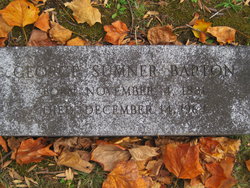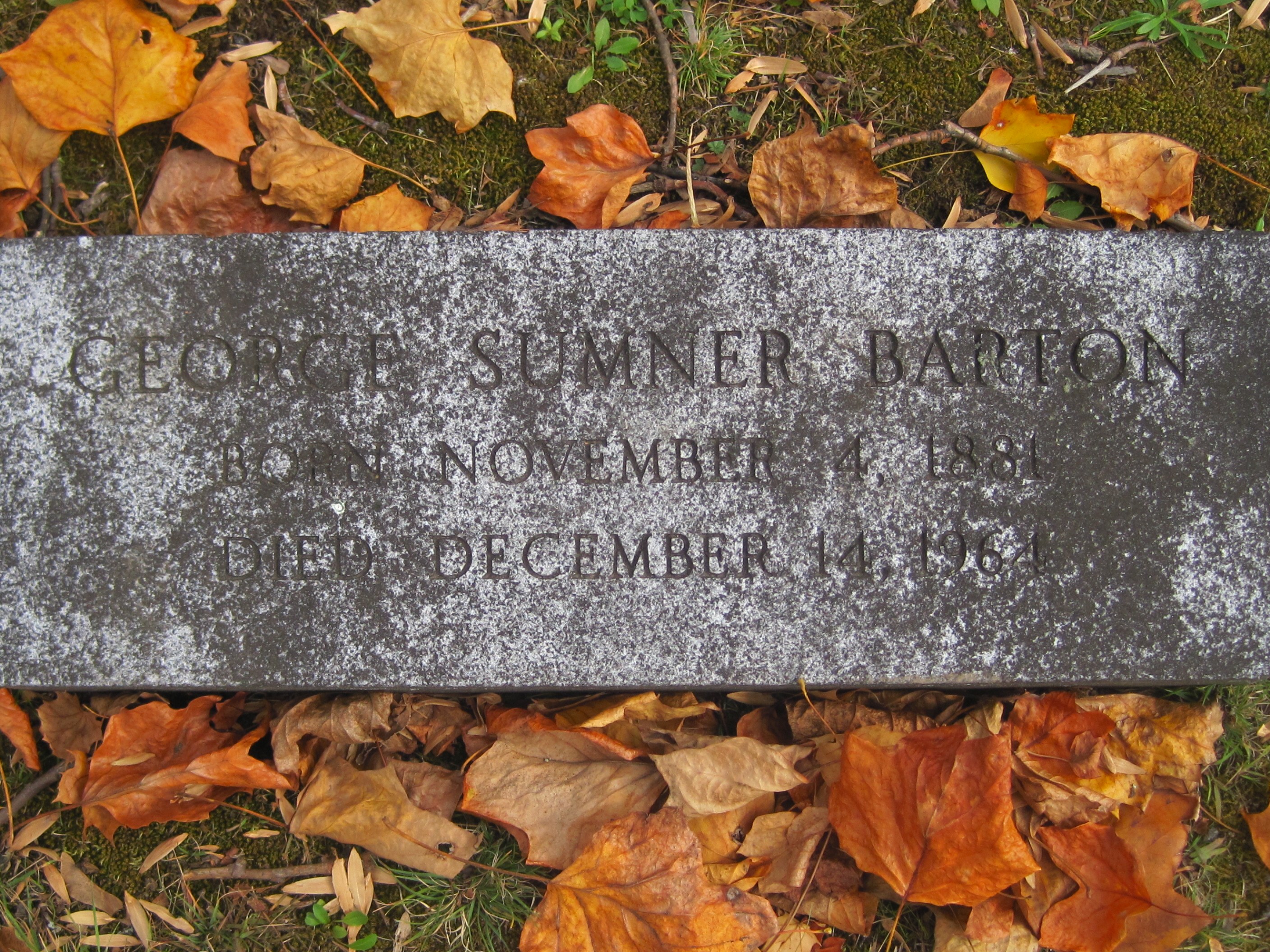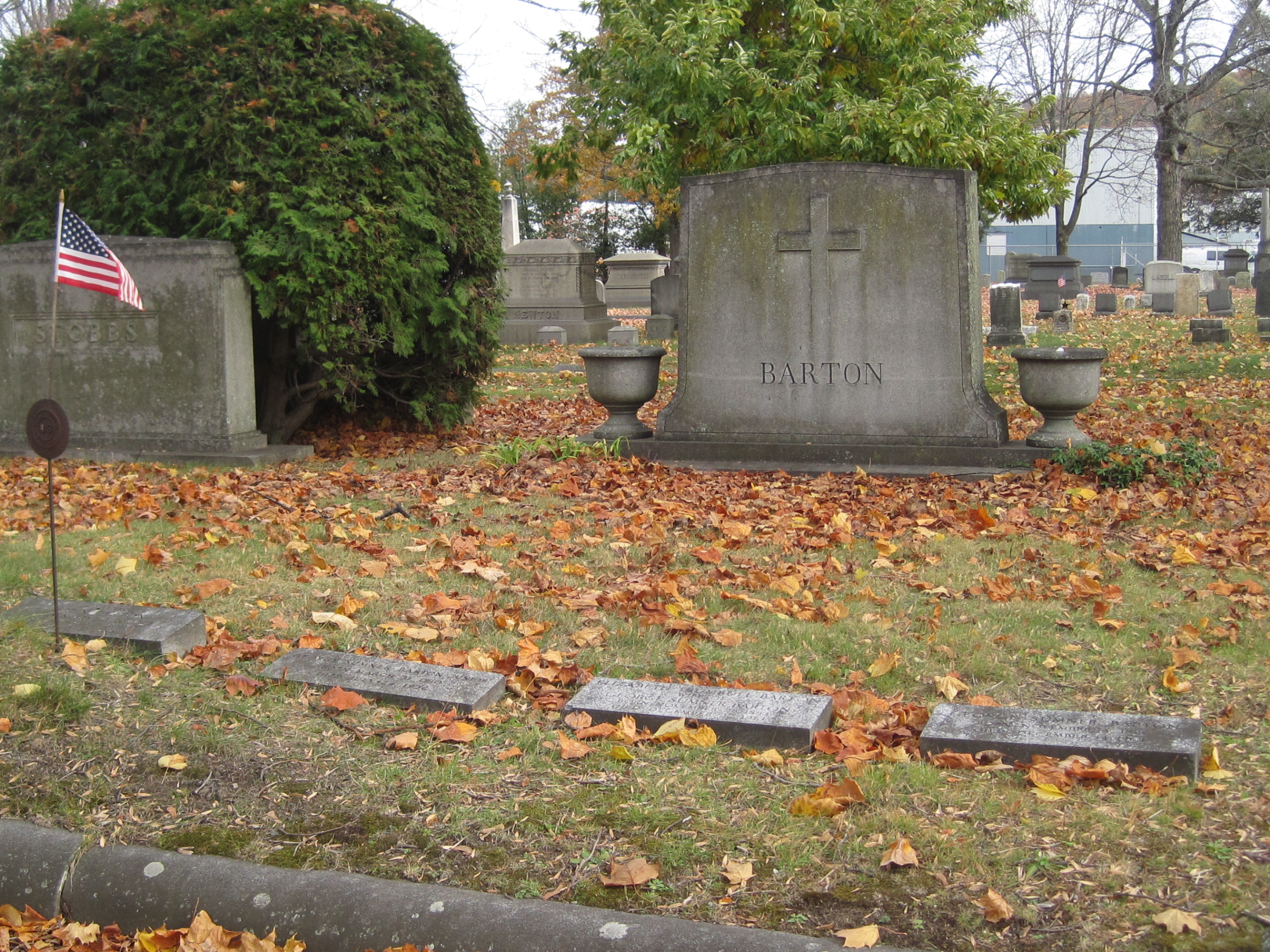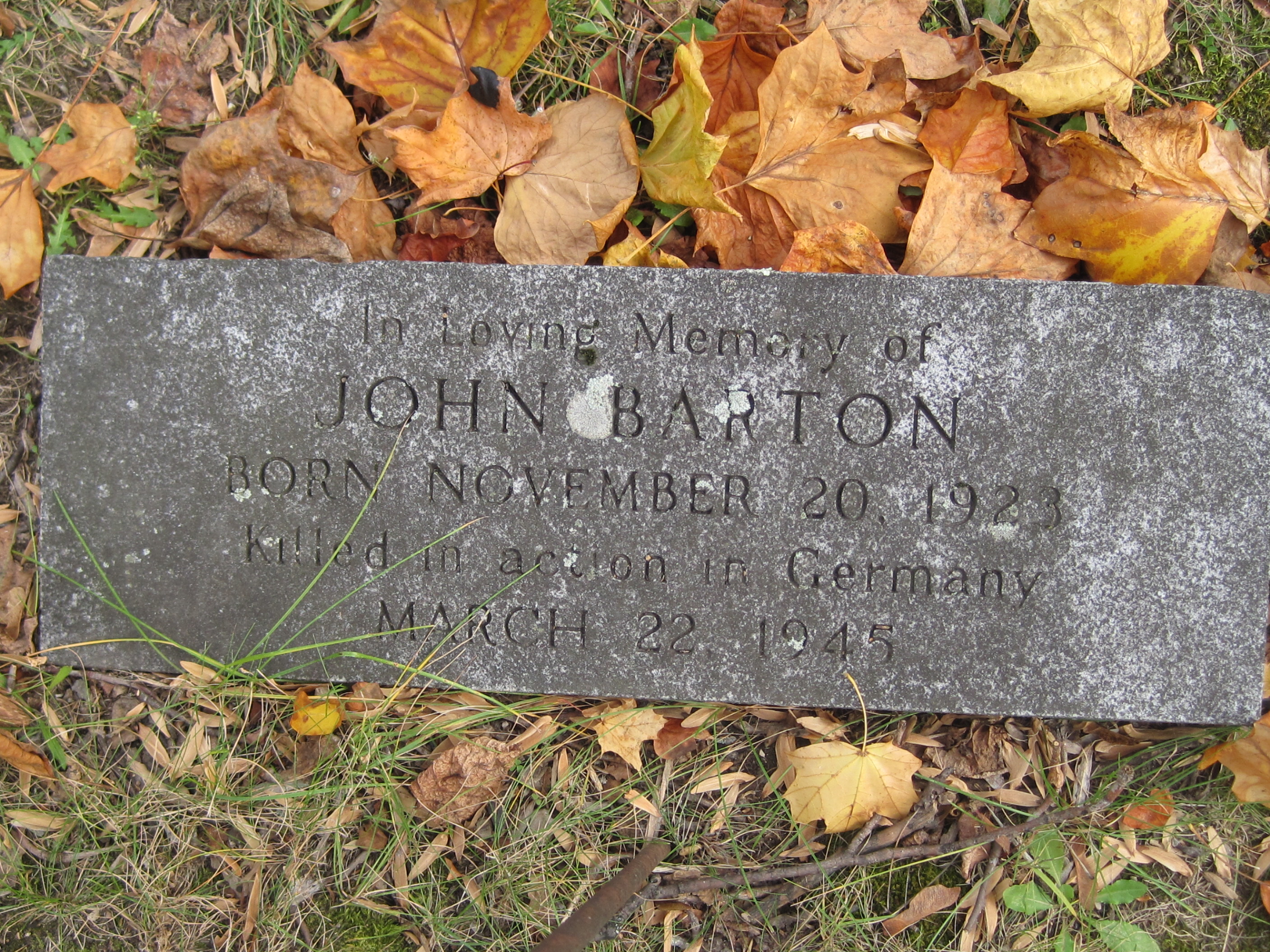Bio contributed by Elevenfloors (#47459628)
George Sumner Barton was born in Worcester on November 4, 1881, a son of Charles Sumner and Elizabeth (Holbrook)Barton. He was educated at St. Mark's School and at Harvard College, where he was graduated in 1903. He immediately entered the employ of the Rice-Barton Corporation of Worcester, manufacturers of paper-making machines.
He began as a laborer but was advanced with a rapidity which was not surprising, he used to say, in view of the fact that his father was president of the corporation. After some years as secretary, he succeeded his father in the presidency in 1914, where he remained until he became Chairman of the Board in 1951.
The Bartons are an old Worcester family, and George carried on its tradition by serving as chairman of the Parks and Recreation Commission, trustee of the Worcester Art Museum, and president of the Board of Trustees of Memorial Hospital. About twenty years ago he moved from Worcester to Barlin Farm in neighboring Boylston, where he served on the town finance committee. He farmed with enthusiasm and absolutely no financial success, no doubt in part because of the distractions of his tennis courts, on which he entertained some of the great players of the day. His other interest, the one which he placed first, was autograph collecting, and it carried him into membership in the Club of Odd Volumes.
Autograph collecting, family connections, and a deep and abiding friendship for Clarence Brigham brought about George Barton's election to the American Antiquarian Society in 1925. One of his first acts was to obtain the election of an old college friend. Franklin Delano Roosevelt, then a New York State county commissioner showing an interest in records, and later a visitor at Barlin Farm. Mr. Barton became a member of the Council of the Society in 1930, and a vice president in 1942. Although he never really comprehended our function, he was, as long as Clarence Brigham lived, a generous and helpful member. He at times paid for shipments of paper for our publications, and by appealing to President Roosevelt obtained the paper which made possible the printing of Brigham's History and Bibliography of American Newspapers.
The Council dinners at his farm were delightful, and only fear of the weather kept us from accepting his offer to entertain the entire membership at luncheon. As a member of committees, such as that to build the third stack for the library, he was always helpful.
After some years of distinguished service to the Protestant Episcopal Church, Mr. Barton was, in 1939, received into the Roman Catholic Church, but this was not accompanied by any weakening of his attachment to the Republican Party of his ancestors. He now extended his list of good works to Assumption College, which gratefully awarded him a doctorate in 1964.
Blessed with good health, Mr. Barton swam from his summer home on Martha's Vineyard to Woods' Hole and back at an age at which most of us are careful about getting into the shower. The loss of his wife, Elizabeth Trumbull Lincoln, in 1961, shook him badly, and he declined from that time until his death on December 14, 1964. The Bartons leave two daughters, three sons, and many descendants in the third generation.
Bio contributed by Elevenfloors (#47459628)
George Sumner Barton was born in Worcester on November 4, 1881, a son of Charles Sumner and Elizabeth (Holbrook)Barton. He was educated at St. Mark's School and at Harvard College, where he was graduated in 1903. He immediately entered the employ of the Rice-Barton Corporation of Worcester, manufacturers of paper-making machines.
He began as a laborer but was advanced with a rapidity which was not surprising, he used to say, in view of the fact that his father was president of the corporation. After some years as secretary, he succeeded his father in the presidency in 1914, where he remained until he became Chairman of the Board in 1951.
The Bartons are an old Worcester family, and George carried on its tradition by serving as chairman of the Parks and Recreation Commission, trustee of the Worcester Art Museum, and president of the Board of Trustees of Memorial Hospital. About twenty years ago he moved from Worcester to Barlin Farm in neighboring Boylston, where he served on the town finance committee. He farmed with enthusiasm and absolutely no financial success, no doubt in part because of the distractions of his tennis courts, on which he entertained some of the great players of the day. His other interest, the one which he placed first, was autograph collecting, and it carried him into membership in the Club of Odd Volumes.
Autograph collecting, family connections, and a deep and abiding friendship for Clarence Brigham brought about George Barton's election to the American Antiquarian Society in 1925. One of his first acts was to obtain the election of an old college friend. Franklin Delano Roosevelt, then a New York State county commissioner showing an interest in records, and later a visitor at Barlin Farm. Mr. Barton became a member of the Council of the Society in 1930, and a vice president in 1942. Although he never really comprehended our function, he was, as long as Clarence Brigham lived, a generous and helpful member. He at times paid for shipments of paper for our publications, and by appealing to President Roosevelt obtained the paper which made possible the printing of Brigham's History and Bibliography of American Newspapers.
The Council dinners at his farm were delightful, and only fear of the weather kept us from accepting his offer to entertain the entire membership at luncheon. As a member of committees, such as that to build the third stack for the library, he was always helpful.
After some years of distinguished service to the Protestant Episcopal Church, Mr. Barton was, in 1939, received into the Roman Catholic Church, but this was not accompanied by any weakening of his attachment to the Republican Party of his ancestors. He now extended his list of good works to Assumption College, which gratefully awarded him a doctorate in 1964.
Blessed with good health, Mr. Barton swam from his summer home on Martha's Vineyard to Woods' Hole and back at an age at which most of us are careful about getting into the shower. The loss of his wife, Elizabeth Trumbull Lincoln, in 1961, shook him badly, and he declined from that time until his death on December 14, 1964. The Bartons leave two daughters, three sons, and many descendants in the third generation.
Family Members
Sponsored by Ancestry
Advertisement
Advertisement

















